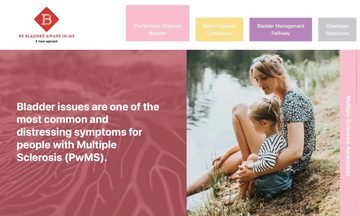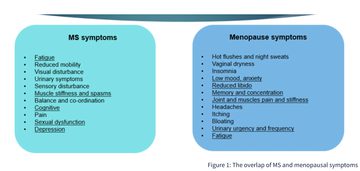#MSUnfiltered: this year's MS Awareness Week campaign
NewsThis year's MS Awareness Week campaign is #MSUnflitered. Focusing on the less known, less discussed aspects of MS, the campaign seeks to break down taboos and barriers, and ensure people with MS get the support they need to manage all of their symptoms.
'We don't know what we don't know' and there are symptoms which people with MS and healthcare professionals alike may not associate with MS, or may not know to ask about. As in all things, by increasing awareness, and then educating around these areas, we can start to change understanding, and begin to take action.
Speech
A recent webinar opened by identifying 40-50% of people with MS may have speech difficulties noticed by another person, which can be exacerbated by cognitive difficulties, fatigue, and reduced engagement in society through unemployment or lack of social support. neurologist Dr David Paling, advanced nurse practitioner Sinead Jordan, and highly specialist speech and language therapist Sheridan Daly 'discuss the unspoken', looking at the evidence base for speech and communication difficulties in MS and how we can support people to remain in work, and to seek help in managing this symptom.
Bladder problems
Bladder and bowel function has been getting more air time over the past few years with the Be Bladder Aware in MS campaign and the new care pathway for bladder management. However, it still remains a more taboo conversation than is ideal, and urinary tract infections are a top 3 contributor to more unplanned hospital admissions whilst being known to exacerbate MS symptoms or even trigger relapse.

Our Uro-neurology Academy provides education on bladder and bowel management across neurological conditions including MS, and the recent webinar Ruth Stross chaired across neurologist Prof Jalesh Panicker, clinical nurse specialist in uroneurology Colette Haslam and healthcare consultant Sue Thomas is a brilliant place to start if this is a less understood area for you.
Work by MS specialist nurses across the country to improve bladder management and increase education about bladder symptoms and care with people with MS was presented at ECTRIMS this year and their transferable initiatives are also a great place to start if you are looking to improve bladder care in your local patch.
Menopause
Whilst the perimenopause and menopause have become more openly discussed over the past few years leading to increased information sharing, and better recognition of symptoms and how to manage them, there is still a lack of understanding over the implications for managing this stage of life in those with MS.
On International Women's Day, our head of nursing Ruth Stross co-authored an excellent article with Dr Kate Petherham and postgraduate researcher Sue Britt highlighting the complexity around this topic, and calling for better understanding and coordinated management of MS alongside peri-and menopausal symptoms. The article notes:
'We now recognise that there is significant overlap in symptoms between those of MS and perimenopause or menopause (figure 1). These symptoms include urinary and sexual dysfunction, memory disturbance, mood changes and fatigue, among others and can also affect physical, emotional, mental and social wellbeing (Giovannoni et al 2024). Healthcare professionals may not be aware of this overlap which leads to delays in symptoms being treated appropriately (figure 2). This also leads to frustration for women who may not know where to turn to for advice.'

Cognition
Cognitive impairment affects up to 65% of people with MS in every form of the disease (Portaccio & Amato 2022), whilst brain atrophy occurs at a faster rate in people with MS than healthy adults (Giovannoni 2016) meaning they have less 'reserve', something linked strongly to development of CI (Garcia 2022). CI can have a significant impact on quality of life, and perceived meaning in life affecting employment, relationships and activities of daily life and with social isolation also strongly linked to cognitive decline (Garcia 2022, Livingston 2020), this could then contribute to a downward spiral.
Work to increase recognition and monitoring of cognitive impairment in people with MS is increasing, with local projects to address this becoming more common in our MasterClass intermodule projects, and trials with the symbol digit modalities test becoming more common (You can read some of these in our recent education with impact report for MS). However, it remains an under-recognised and hugely impactful symptom - and the more we can increase awareness and understanding, the more we can address this. Drs Floriana de Angelis and Anisha Doshi and Mark Webb who lives with MS discussed this topic a few years ago, and their messages continue to be relevant today.
Related articles
Encouraging excellence, developing leaders, inspiring change
MS Academy was established in 2016 and in that time has accomplished a huge amount with exciting feedback demonstrating delegates feel inspired and energised along their personal and service development journeys. The various different levels of specialist MS training we offer are dedicated to case-based learning and practical application of cutting edge research.


